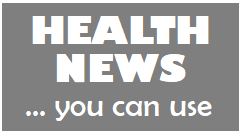Take care of your meds! Common mistakes people make with their prescription drugs
By Jancee Dunn
I recently visited my parents, and I was ransacking their kitchen for snacks when I noticed something: Their medications were in a cabinet near their oven.
 “Keeping your meds there isn’t ideal,” I told my dad. “You’re cooking all the time, and it’s hot.”
“Keeping your meds there isn’t ideal,” I told my dad. “You’re cooking all the time, and it’s hot.”
“I’m sure it’s fine,” my father said. Then, he looked at me warily. “You’re going to ask some experts, aren’t you?” he asked.
“Tell Mom and Dad that’s not a good idea,” said Myriam Shaw Ojeda, an assistant professor of pharmacy practice and science at Ohio State University’s College of Pharmacy. Storing medication near a heat source may reduce its effectiveness, she explained.
My parents aren’t the only people who assume that one safekeeping spot is as good as another. Less than half of the participants in a 2021 study were storing their medications appropriately. And that’s just one of the many mistakes that people make when it comes to filling, storing and discarding prescription drugs.
Below, pharmacists share their best tips.
 Take your meds out of the bathroom cabinet.
Take your meds out of the bathroom cabinet.
Just as storing pills near heat-generating kitchen appliances can reduce their effectiveness, keeping them in a bathroom cabinet is a bad idea, said Mary Bridgeman, a clinical professor at the Ernest Mario School of Pharmacy at Rutgers University. The term “medicine cabinet” is a “total misnomer,” she said.
Steam from your bathroom can erode the coatings on medications and heat can break down the active ingredients, said Eric MacLaughlin, the chair of the pharmacy practice department at Texas Tech University Health Sciences Center.
The kitchen can be a good spot, he said, as long as you’re storing your medication in a “cool, dry place” away from temperature fluctuations. (Dr. MacLaughlin also warned that medications should be stowed away from children and pets.)
Many oral medications should be kept at temperatures between 68 and 77 degrees, according to the United States Pharmacopeia, an independent, nonprofit organization that sets drug quality standards. Check the patient leaflet for storage instructions, Dr. MacLaughlin said.
Learn how to take your medications properly.
You may think you know how to take a pill or use an insulin pen, but research suggests that half of the prescription medications taken in the United States are used improperly. So, in addition to asking about any side effects, go over the instructions for use, including what to do if you skip a dose, Dr. Shaw Ojeda said.
“It’s a human-nature thing,” she said. “We just go out of the pharmacy and think, ‘I know how to use this.’” But some patients will inject their medication in the wrong part of their body, insert a suppository with the foil on or overuse an inhaler, she added.
If you’re unsure how to administer something like an insulin pen or an injectable, ask the pharmacist to give you a demonstration.
And if you crush pills because you have trouble swallowing them, let your pharmacist know, Dr. MacLaughlin added. Some medications, he said, have a time-release coating or other mechanism to release an active ingredient more slowly. If you crush them, he said, “you get basically your entire dose at one time.”
Review your medications.
It’s a good idea to go over your medications periodically to make sure that all of them are still necessary and meet your current needs, Dr. Bridgeman said.
If you have Medicare with a drug coverage plan, Dr. Bridgeman said, you may be eligible for a service called Medication Therapy Management. This allows you to review all of your medications with a pharmacist or health care provider. It’s free, and you’ll also get a written summary of your medications that you can bring to your doctor or to an emergency room.
Ask about prices.
Check with your pharmacist whether there’s a generic drug or a coupon available, Dr. MacLaughlin said. “Sometimes the manufacturers have coupons that the pharmacy can apply to the person’s co-pay,” he added.
For a 2018 Consumer Reports investigation, secret shoppers were sometimes able to negotiate a discount when they asked, “Is that really the best price you can offer?”
You can always ask a pharmacist whether there are any deals, Dr. MacLaughlin said, and “they can always say no.”
Get rid of old drugs the right way.
It may seem convenient to flush unused or expired drugs down the toilet, but they can end up in our water supply, Dr. MacLaughlin said. And wastewater treatment plants, according to the Environmental Protection Agency, aren’t designed to remove them. So you’ll want to dispose of them in a responsible manner.
In the U.S., the Drug Enforcement Administration offers a national drug take-back day twice yearly — the next one is Oct. 26. It even has a festive countdown on its website. And many pharmacies have secure drop boxes for expired drugs, Dr. Shaw Ojeda said.
The Department of Justice has a search option for year-round drug drop-off locations near you. If you can’t get to one of those locations, the FDA has instructions for disposing of drugs in the trash.
I told my parents that Dr. Shaw Ojeda recommended that they move their medications, so they transferred them to a pantry next to some expired soup cans. During my visit, I also pointed out that the minestrone had passed its sell-by date.
My dad sighed and said, “Please don’t call the experts.”
__________________
Credit: New York Times Morning Letter
















